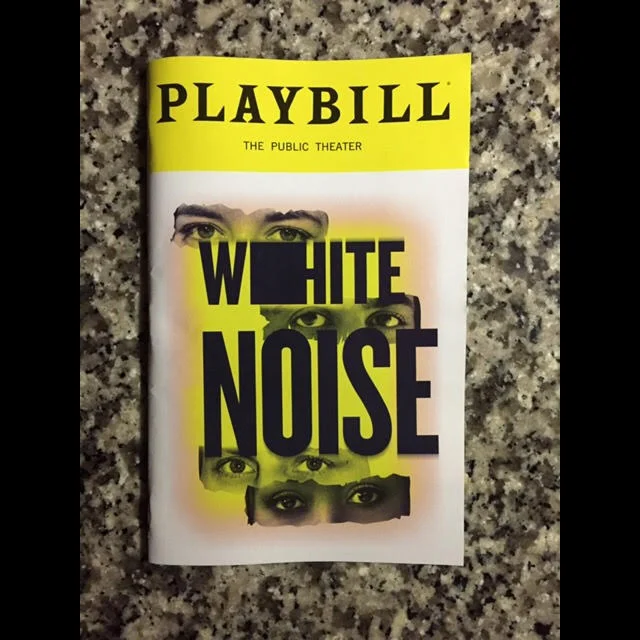Flashback Friday: White Noise
Spoiler Warnings: The following contains minor spoiler warnings for White Noise, which closed at The Public Theater on May 5th.
Whenever I hear someone call a piece of theater a “problem play,” something about it inherently sounds reductive. Most societal issues are complex and difficult, and labeling them as a problem to be dealt with in a couple of hours gives me pause that the issues will not be handled deftly—especially not if there is any type of real conclusion. It takes a talented playwright to turn a lens towards huge, complicated issue like police brutality, racism, and privilege and have the resulting play feel both impactful and also entertaining. In White Noise, Suzan-Lori Parks has written a superb play that was made even better by a stellar cast.
Ms. Parks is an incredibly accomplished writer. She studied under James Baldwin, won the Pulitzer Prize for Drama in 2001, was a finalist for the Pulitzer Prize twice more in 2000 and 2015, and was awarded a MacArthur Genius Grant in 2000. Ms. Parks is known for writing absurdist plays, and in a lot of ways, White Noise fits that bill. It’s a play where a black man is the subject of police violence and subsequently asks his rich, white best friend to enslave him in an effort for him to get to greater understanding of race and show people they aren’t as evolved as we all pretend to be. It’s an absurd technique, but Ms. Parks fills each character’s lines with passion, pain, and purpose. The play is biting, but it’s also quite funny at parts. Ms. Parks blends together her words to achieve heightened and varied emotions at a frenetic pace.
As strong as Ms. Parks words would read on the page, they were brought to life beautifully by the cast. Out of the four actors, the most well-known is likely Daveed Diggs (Hamilton), who is absolutely exceptional in the role of Leo, the man who is the subject of police violence. Perfectly holding their own with Mr. Diggs are Zoe Winters, Sheria Irving, and Thomas Sadoski. Though the absurd concept intentionally makes each character in moments come close to being caricatures, the actors pull through each scene with such intensity that they feel real, developed, and true even in the more absurd moments. This is best seen in the play when each character is given a long monologue, relevant to both the situation of the play but also the character back story. It’s engaging, intense theater, and the actors nail it.
White Noise runs about three hours and fifteen minutes, but it flies by. Intermission came quicker than I anticipated, and the second act ended before I was ready for it to. As I left the theater, I found myself thinking about who I wanted to see the play. Some problem plays feel as if they’re designed for people who already agree with the premise. Some feel as if they’re designed to teach people. I think White Noise did something subtler. Ms. Parks has written a play that can teach something to people who think they agree with a premise, and it can get some agreement out of people who might have more to learn. Racism is an incredibly complicated premise, and this play shows that maybe we aren’t nearly as far as we want to be.
